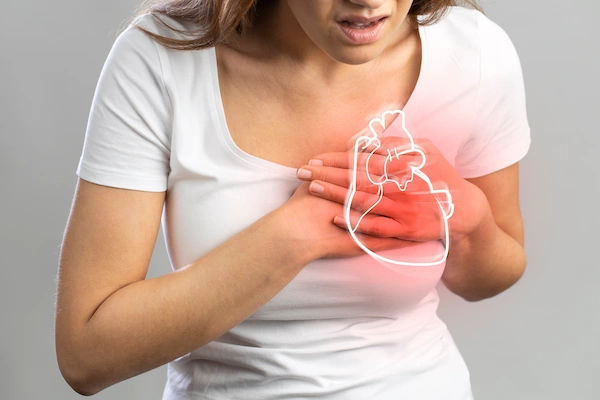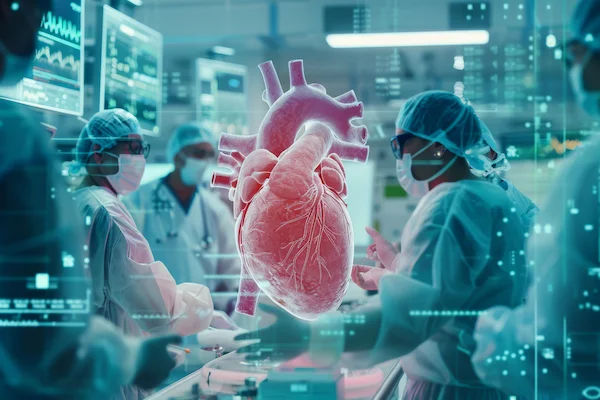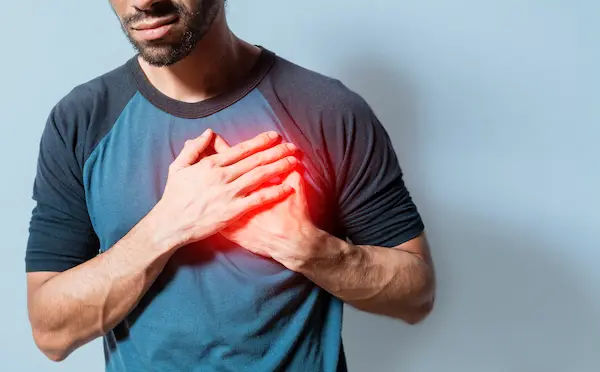- Male
- 30 Years
- 22/01/2025
I've been having this thing where my chest hurts for just a second or two, and then I feel okay again, but it keeps happening. It's like every 45 minutes or so, especially after I eat or drink. I'm not really sure what's going on, and it's starting to worry me. What do you think I should do about it?
Answered by 1 Apollo Doctors
Intermittent chest pain can be concerning. Given your symptoms, here are some possible explanations and advice:
Possible Causes
- Acid Reflux: Gastroesophageal reflux disease (GERD) can cause chest pain, especially after eating or drinking.
- Digestive Issues: Swallowing air, eating too quickly, or having an underlying digestive condition like IBS can lead to chest pain.
- Musculoskeletal Issues: Tight muscles or inflammation in the chest wall can cause brief, sharp pains.
What to Do
- Stay Calm: Your symptoms don't appear to be life-threatening, but it's essential to monitor them.
- Monitor Your Symptoms: Keep a journal to track when the chest pain occurs, how long it lasts, and any potential triggers.
- Avoid Trigger Foods: If you suspect acid reflux, try avoiding trigger foods like citrus fruits, tomatoes, chocolate, and spicy or fatty foods.
- Antacids or Acid Reducers: Consider taking antacids or acid reducers like Tums, Rolaids, or Zantac to help alleviate acid reflux symptoms.
- Stay Hydrated: Drink plenty of water throughout the day to help with digestion and reduce symptoms.
When to Seek Medical Attention
- Severe Chest Pain: If your chest pain becomes severe, lasts longer than a few seconds, or is accompanied by difficulty breathing, dizziness, or a cold sweat, seek immediate medical attention.
Dr. Anshul Suggests...
Consult a Cardiologist
Answered 04/07/2025
0
0

More Cardiology Health Queries
View allI'm Sanjay, and I've been dealing with this small pin-point pain in my chest for the last two months. I saw a local doctor who suggested getting an ECG and blood tests. After the tests, he said my heart's fine and linked the pain to gastric issues. He prescribed Rablet D and Met XL. Could you have a look at my ECG and let me know if there's really no heart issue? I'm a non-smoker, non-drinker, weighing 59 kg, and I'm 158 cm tall. I've uploaded my ECG, blood test, and TMT 2D Echo reports. Can you help me figure this out?
As per your ECG report, there is no problem with your heart. The chest pain you are experiencing is likely due to gastric issues, as mentioned by your doctor. The medications prescribed to you are: - Rablet D (Dosage: 1 tablet before breakfast) - Met XL (Dosage: As prescribed by your doctor) Continue taking these medications as advised by your doctor. Additionally, you can try to avoid spicy and oily foods, eat smaller meals more frequently, and avoid lying down immediately after eating to help with your gastric symptoms. If the chest pain persists or worsens, please follow up with your doctor for further evaluation.
Answered by 1 Apollo Doctors
I've just gotten over COVID, and I've noticed some changes in my heart rate. When I'm at rest, it's okay around 70-95, but when I climb stairs, it spikes to between 160-165. Even when I'm just walking at a pace of 5 kmh, it's around 130-140. Is this normal post-COVID, or should I be concerned?
ecg and trop t are advised to the patient..
Answered by 1 Apollo Doctors
My mother has congestive heart failure and her doctor recommended she take Azmarda 100mg twice a day. I'm wondering if there's a more affordable alternative to Azmarda 100mg that would still be effective? Were keeping an eye on costs and just trying to find the best option for her treatment.
for your mother's condition of congestive cardiac failure, an alternative to Amzarda 100mg that is more cost-effective is Losartan 50mg. It can be taken once daily and is a good option for managing heart failure while being more affordable."
Answered by 1 Apollo Doctors
Disclaimer: Answers on Apollo 247 are not intended to replace your doctor advice. Always seek help of a professional doctor in case of an medical emergency or ailment.





